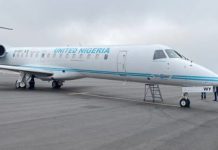Data released by the National Bureau of Statistics (NBS) Tuesday said the country’s capital inflow rose by 66.27 per cent to $1.08 billion in the fourth quarter of 2023 compared to $654.65 million in the preceding quarter.
The figure was slightly higher than $1.06 billion recorded in Q4 2022 by 2.62 per cent.
According to the Nigerian Capital Importation Report for the review period, other investment types accounted for 54.64 per cent or $594.74 million of the total capital importation in Q4.
While portfolio investment accounted for $309.76 million or 28.46 per cent of total share, foreign direct investment (FDI) amounted to $183.97 million or 16.90 per cent.
The NBS also reported that production/manufacturing sector recorded the highest inflow with $450.11 million, representing 41.35 per cent of total capital imported followed by the banking sector, which represented $283.30 million 26.03 per cent and financing which contributed $135.59 million or 12.46 per cent during the period under review.
Capital Importation during period originated largely from the United Kingdom with $267.24 million, with a share of 24.55 per cent; Mauritius, $226.18 million or 20.78 per cent and The Netherlands, $149.93 million or 13.77 per cent.
The top beneficiary destinations for foreign inflows were Lagos, $771.68 million or 65.38 per cent of total capital importation; Federal Capital Territory, $370.80 million or 34.07 per cent and Rivers, $6.00 million or 0.55 per cent.
Other states that attracted foreign investments during the period were Abia, $150.09 million; Akwa Ibom, $39.13 million; Ogun, $27.09 million; Adamawa, $4.5 million; Anambra, $4 million; Niger, $1.50 million; Ondo, $200,000 and Ekiti $51,000.





















































